269 How To Work For a Jerk
Podcast: Play in new window | Download ()
Subscribe: Apple Podcasts | Spotify | RSS | More
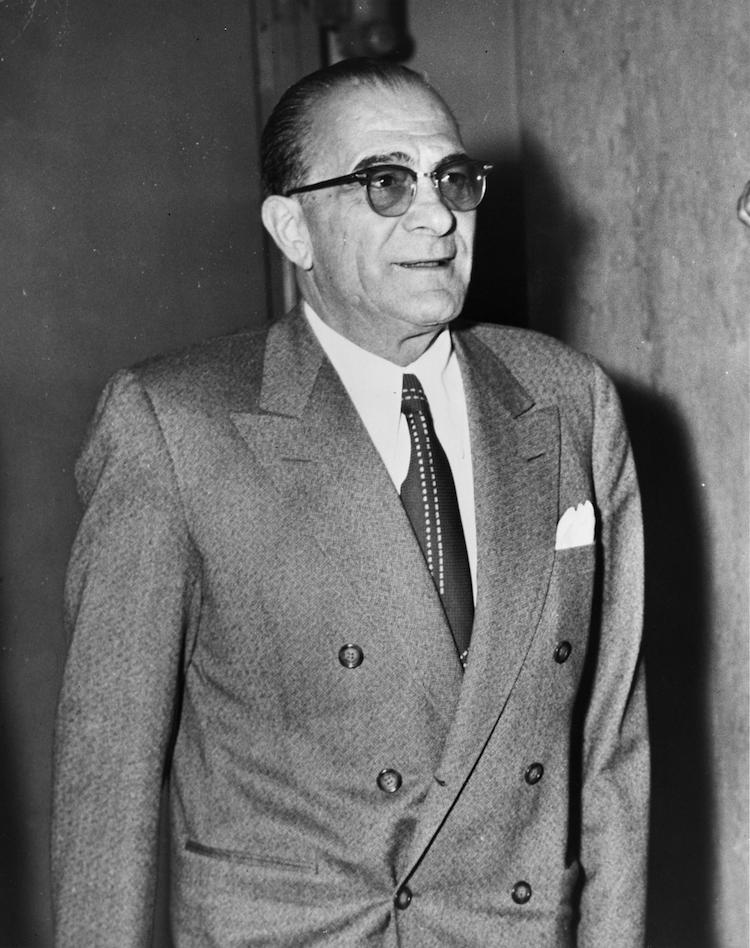
You think you’ve got a jerk for a boss?
It’s all relative. From 1957 to 1969 you could have been employed by this guy, Vito Genovese, head of the Genovese crime family. I’m betting he was worse than any boss you’ve ever had. I know that doesn’t make you feel any better about your mean boss though.
This podcast is about higher human performance, especially in the areas of leadership, running effective organizations and operating profitable businesses. The Genovese crime family remains the most powerful and organized group in the country. According to newspaper accounts, barely more than a handful of family members have ever turned state’s evidence against the organization. Remarkable in a time when most crime families have been greatly damaged by multiple arrests and convictions brought about by insiders who turned against their bosses.
If your company or organization began sometime after 1931 then you’re not as old as the Genovese crime family. Charlie “Lucky” Luciano is credited with starting an organization that would take crime to new heights of profitability and efficiency. This September 10th, it will have been 84 years since Lucky created his own luck by murdering a man who was the reigning dictator of the group. He was autocratic and difficult, so Luciano conspired to knock him off. No, that’s not my answer to today’s show title. But it does show you how one tough boss can see the destruction in another yet overlook his own. History provides lots of stories of dictators – political and organizational – who knocked off their predecessors in one way or another, only to replace them with their own brand of tyranny.
It’s not tyranny when it’s your own behavior.
Tyrants don’t much like working for tyrants. I suppose most tyrants don’t see themselves for what they really are though. However, I suspect I have no clue about such things when it comes to organized crime. I rather suspect crime bosses know the power of tyranny and embrace it. If murder, larceny, theft, drugs, prostitution and other crimes are your way of life…I don’t imagine you’re too terribly concerned with employee engagement or high morale. You’re not restricted by just whacking your competition or opponents, you’ll whack any of your own people who get out of line. Meanwhile, back at our ranch, we’ve got to go visit the Director of HR and make sure we’re being polite, respectful and professional. Vito had no such restrictions.
I’m a fan of good biographies. Come to think of it, I can enjoy a bad biography ever now and again. Like Vito’s story. Or Lucky’s. Bad people can give us great stories. But I’m not suggesting we emulate them.
Your boss is a jerk. A class A (and you know what the A stands for) jerk.
Maybe he’s a dictator. Maybe she’s autocratic. Maybe he’s not supportive. Or maybe she’s overbearing and judgmental.
He might be a yeller. She might be hateful. Maybe he’s belittling. Or she could be cold and lack any compassion.
Bad bosses come in all shapes, sizes, dispositions and genders. They’re not all created equal. Some peg a 10 on a scale of 1 to 10. Others are a strong 7. Or worse. Or slightly better. But a mean boss who is a jerk can also be a 1. They’re still jerks and counter to your well-being.
Mean Bosses Can Be Productive
 You don’t want to believe that, but it’s true. Vito was effective. Mostly because you didn’t mess with him and live. When murder and violence are workable options it’s difficult to foil effectiveness.
You don’t want to believe that, but it’s true. Vito was effective. Mostly because you didn’t mess with him and live. When murder and violence are workable options it’s difficult to foil effectiveness.
We want to believe that jerks can’t succeed, or be effective leaders, but they can – and often are. That doesn’t mean it’s the best way to go. It just means we can’t be naive to think if people don’t do things with high character or integrity, then they can’t possibly be high achievers. Evil people can achieve spectacular results through their poor behavior. Drug lords do it. Crime bosses do it. Dictators do it. Hackers do it. Con men do it. Corporate titans do it. That doesn’t make it right. Nor does it mean they serve as the best template for high performance.
 Back in 1990 I was browsing through a bookstore – my favorite pass-time – and noticed this book, Leadership Secrets Of Attila The Hun. It wasn’t the first book of that sort. Won’t be the last either. People will read leadership books about most anybody or any strategy because many of us are constantly searching for better methods.
Back in 1990 I was browsing through a bookstore – my favorite pass-time – and noticed this book, Leadership Secrets Of Attila The Hun. It wasn’t the first book of that sort. Won’t be the last either. People will read leadership books about most anybody or any strategy because many of us are constantly searching for better methods.
But today’s show isn’t about extolling the virtues of being a jerk leader…it’s about how to work for a jerk.
I don’t advocate jerkdom as a good leadership model. If you’re a military dictator or a mafia crime boss then it suits your line of work. If you’re running a business or an organization with above board goals, then you’re going to need more integrity-based leadership tactics and styles. However, sometimes good people – productive people with high character – find themselves stuck working for a jerk. What can they do?
Here’s my disclaimer – don’t worry, it’s not much of one. One size won’t fit all. Jerks come in a wide variety of forms. Some are loud and brash, while others are passive-aggressive. Some holler, yell and carry on like madmen while others dispatch henchmen to do their dirty work. It takes all kinds. And you may have a jerk boss who is very different than somebody else. So let me first define JERK.
The jerk boss is somebody who is a constraint. They’re the bottleneck to productivity. They’re an impediment to innovation, progress and success. People would do better work if they didn’t exist. They may contribute some positive things, but their negative impact far outweighs any positive attributes they may have. Merely removing the jerk boss will likely cause productivity, morale and achievement to soar. The jerk isn’t just some impolite, rude behaving leader. They use power to abuse people. They feed their own paranoia with their position and authority.
I often sit down with people – one or one or in a small group – and inquire how the troops feel about the boss.
“Is he a constraint to your performance or a solution to your constraints?”
Put another way,
“Does the boss knock down roadblocks that get in your way, or is he a roadblock?”
That may not be how you think about the term, JERK, but it’s my definition.
Here are some suggestions to help you work for a jerk.
1. Don’t do it if you can help it.
This is easier if you have options. It’s also easier if you not only hate working for the jerk, but you hate the work you’re doing. I’m sad when I see a person who loves their work – they really enjoy what they do, and they’re very good at it – but they report to a jerk. That’s a tough spot and I have no easy answers for those people. Usually, I urge them to dive into their work, continue to take pride in their accomplishments and remain devoted to doing the best work possible.
Keep your job. Don’t quit.
Make plans to find an alternative.
Get busy chasing an exit option. Find another organization where you can do your work in an environment that fosters productivity.
DO NOT become jaded. Don’t fuss and fume. Don’t do it where you’re at – the current job. Don’t do it when you interview for a new job. You aren’t looking for a new job because your boss is a jerk. You’re hungry for a new opportunity with a high performance organization. Yes, you have to be politically correct. Nobody wants to hire a person who is bringing a sour outlook to the job. Nobody wants to hire a person who may appear difficult or onry.
2. Steer toward what you can do, not what you can’t.
Meanwhile, back at the work ranch, keep your head down. Don’t draw unnecessary attention to yourself or your work. Be competitive and show your jerk boss that you’re going to do remarkable work no matter what. If you need a mantra at work, that’s it: NO MATTER WHAT. Do great work no matter what. Get along with others no matter what. Be an exemplary employee no matter what.
Hold your cards close to your vest. Don’t share anything about your search for a new job with any co-workers. Keep your mouth shut because you can’t afford the jerk boss to find out. People talk. Don’t give them anything to talk about. That includes spreading poison around the workplace. Venting to co-workers about your boss won’t help anybody. Complaining won’t help. Instead, contribute with positive suggestions of things you – and the team – can do to in spite of the problems presented by the jerk boss.
When the team is venting about the latest outbreak of yelling, be the person to step up and say, “Listen, we know what set him off. We weren’t all communicating clearly with each other and helping each other like we should. If we’ll make sure we’re all staying in the loop with each other then we may be able to prevent that from happening so frequently. Let’s start making sure we help each other more.”
It’s almost – not always, but almost – possible to steer a negative gripe session toward more positive actions. Be the person who does that. It’s not a rose-colored glasses thing. It’s far more realistic. Find realistic solutions so you and the team can focus on productive actions instead of complaining.
Remember, you can’t control your boss – jerk or not. You can only control yourself. And you can influence your co-workers. Commit yourself to make a positive difference. Any fool can lead a gripe gut parade. Don’t be that person. They have no value in any organization. They’re always – ALWAYS – a liability.
3. Find a vital friend.
I know I said to keep your mouth shut, but you need somebody – a person – with whom you can be honest. Find a vital friend at work. You’ve likely already got one. This is the person you can trust, a confidant. They may work as part of your team, or not. It’d likely be ideal if they were outside your team. That perspective can be helpful to you. NOTE: Make sure your vital friend isn’t a complainer, whiner or moaner. If they are, you’re going to be in big trouble having them as a vital friend. It won’t go well for you if you insist on making them your vital friend.
We all need a vital friend at work. Tom Rath wrote a great book, Vital Friends: The People You Can’t Afford to Live Without. We all need vital friends in our life, and that includes at work.
Bounce things off them. Talk things over and ask for their feedback. Don’t just follow all their advice, but listen. Assess the situation and make your own decisions. Sometimes just being able to talk about it can help lower the frustration. Do not make it the focal point of your relationship though. You’ll quickly lose your vital friend if it’s all about you and your problems with your boss. Be a vital friend in return to them.
4. Serve your boss.
I know it sounds ridiculous, but it’s important. Go back and remember the phrase NO MATTER WHAT. Your boss rose to power somehow. Assume that he or she is good at something the higher up’s see valuable. Just because you can’t see it doesn’t mean it doesn’t exist. Maybe it used to exist and it’s now gone. But just like you – and every other employee – who was hired, somebody saw something worthy of hiring the person. In the case of your boss, the organization saw something worthy of promotion. Or your boss is the son of the owner (in which case you need to really step up your efforts to find another job).
Failing to serve your boss will not end well for you. You’ll be tempted to think, “If I make my boss look good, then he’ll just get credit for our good work and stay the boss, or get promoted.” Maybe you’re right, but that kind of logic is too focused on the negative. And it’s foolish because you’re not considering your own career.
Do poor work, in hopes it’ll make your boss look bad and you’ll suffer for it. Bosses rarely pay any price for the poor performance of a subordinate. Bad strategy. Don’t employ it.
Don’t try to change your boss. That’s not your job. Your job is to serve your boss by doing great work, by keeping her informed and by being the most valuable employee possible.
Instead, commit to do great work NO MATTER WHAT. Do everything you can to serve your boss. If you can be a high achiever for a jerk, then you’re becoming somebody with high value. You’re making a positive difference while others are letting the jerk distract them. Not you. You’re focused on doing your best in spite of the difficulties. Developing those skills – and that mindset – will propel your career forward to new heights.
Life is full of challenges. No matter the purpose of your organization, there are hurdles and challenges that would foil success. Every organization needs people willing and capable of overcoming challenges to do superior work and deliver superior results. Be one of those people and you’ll have far wider choices.
5. Endure whatever you must for as long as you must.
Make a game of it. Jerks only win if they beat you down. Refuse to quit unless you’ve got a new job waiting. Refuse to do poor work. Refuse to complain or whine.
Your mental toughness will be tested. Embrace it. View the boss as a competitor capable of beating you if you slow down or stop. Don’t give in. Keep doing the right thing so you win. It’s not about making your boss lose. You can’t serve your boss with that attitude. You have to be committed to winning for YOU (and your family). It’ll demand all the focus and tenacity you can muster, depending how big of a jerk you’re working for.
Own your own performance.
The best strategy is to do great work no matter what. Don’t use your jerk boss as an excuse for why you’re failing. Succeed anyway.
If a jerk boss foils your success, then you’re not valuable enough to be highly sought after. You’re among the big herd of people who claim they’d do good work if only this or that would happen. Or if only the boss would do this or that. The world is filled with excuse makers, complainers and whiners. Join them at your peril.
Stand apart from the herd by being exceptional. Prove you can do great work, even for a jerk, and imagine how valued you’ll be when you’re not working for a jerk.

Subscribe to the podcast
 To subscribe, please use the links below:
To subscribe, please use the links below:
- Click Here to Subscribe via iTunes
- Click Here to Subscribe via RSS (non-iTunes feed)
- Click Here to Subscribe via Stitcher
If you have a chance, please leave me an honest rating and review on iTunes by clicking Review on iTunes. It’ll help the show rank better in iTunes.
Thank you!
269 How To Work For a Jerk Read More »



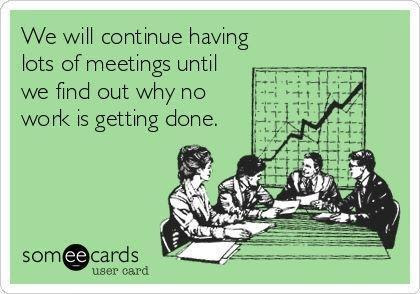




 Innovation in the workplace has been a hot topic during my entire career. It accelerated when the digital age arrived, but it was present long before that. Some of us are old enough to remember a time when our businesses operated with manual, handwritten spreadsheets, telephones and postal service mail. Facsimile machines arrived and suddenly communication got faster. Computers arrived and with it a piece of software called VisiCalc, the first electronic spreadsheet. That made every act of accounting – including inventory control and payroll – faster!
Innovation in the workplace has been a hot topic during my entire career. It accelerated when the digital age arrived, but it was present long before that. Some of us are old enough to remember a time when our businesses operated with manual, handwritten spreadsheets, telephones and postal service mail. Facsimile machines arrived and suddenly communication got faster. Computers arrived and with it a piece of software called VisiCalc, the first electronic spreadsheet. That made every act of accounting – including inventory control and payroll – faster!
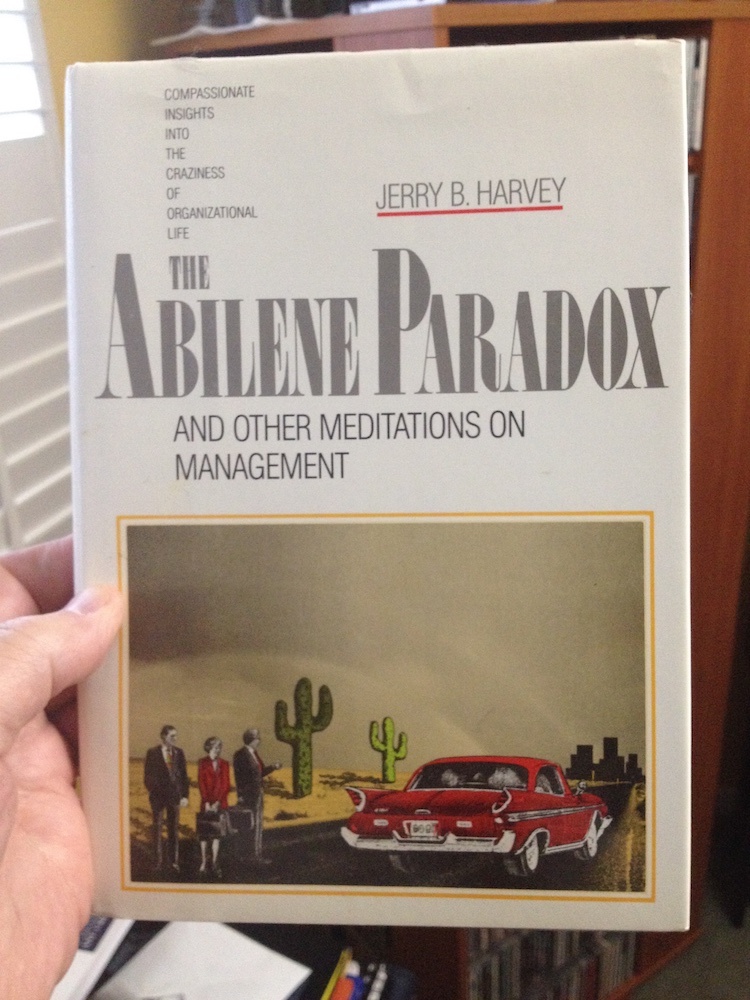


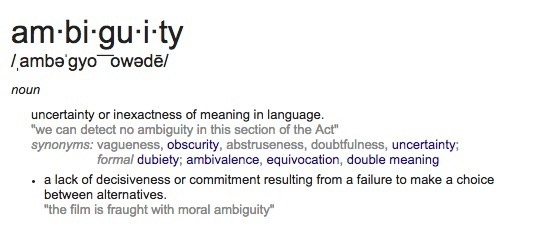

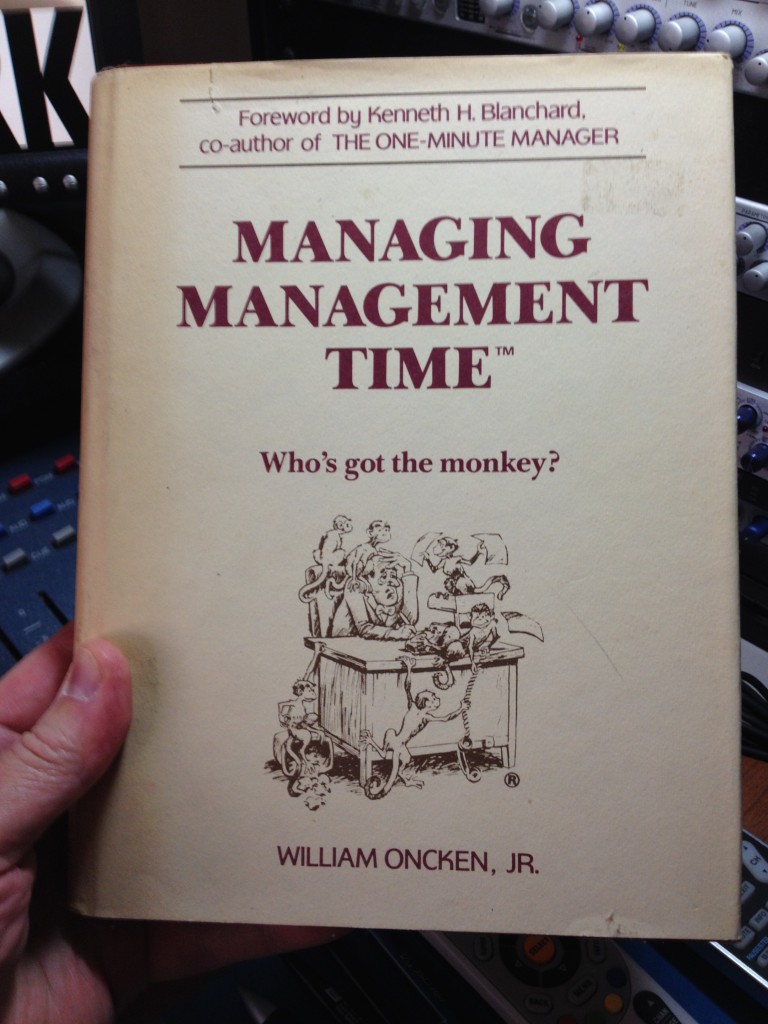

 Ken Blanchard, the author most noted for the One-Minute Manager series of books, published his own version of Oncken’s Managing Management Time™ in collaboration with Oncken in 1989. Blanchard’s One-Minute Manager brand was ridiculously strong at the time and I’d imagine that book garnered much wider fame than Oncken’s original book. I was never very attracted to the One-Minute Manager series, mostly because the business parable or fable bores me. And seems hokey. I confess I’ve never read a business parable that I found attractive*, but I was so fond of Oncken’s original work I bought a copy of Blanchard’s collaboration with him. I will admit there was a book entitled, The 59-second Employee: How to Stay One Second Ahead of Your One-minute Manager that I found entertaining. I’ve still got a copy of that somewhere, but let’s get back to Mr. Oncken’s work.
Ken Blanchard, the author most noted for the One-Minute Manager series of books, published his own version of Oncken’s Managing Management Time™ in collaboration with Oncken in 1989. Blanchard’s One-Minute Manager brand was ridiculously strong at the time and I’d imagine that book garnered much wider fame than Oncken’s original book. I was never very attracted to the One-Minute Manager series, mostly because the business parable or fable bores me. And seems hokey. I confess I’ve never read a business parable that I found attractive*, but I was so fond of Oncken’s original work I bought a copy of Blanchard’s collaboration with him. I will admit there was a book entitled, The 59-second Employee: How to Stay One Second Ahead of Your One-minute Manager that I found entertaining. I’ve still got a copy of that somewhere, but let’s get back to Mr. Oncken’s work.